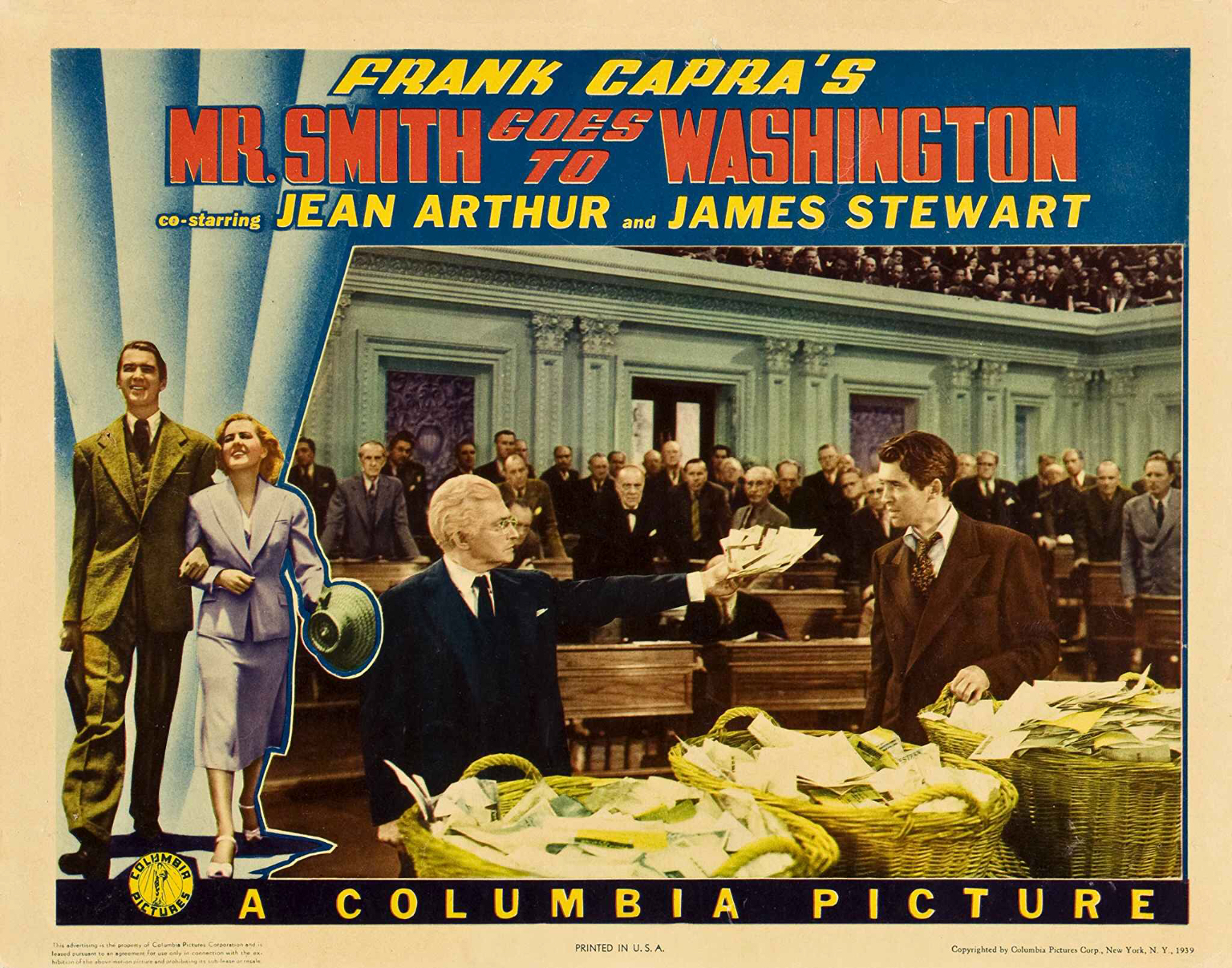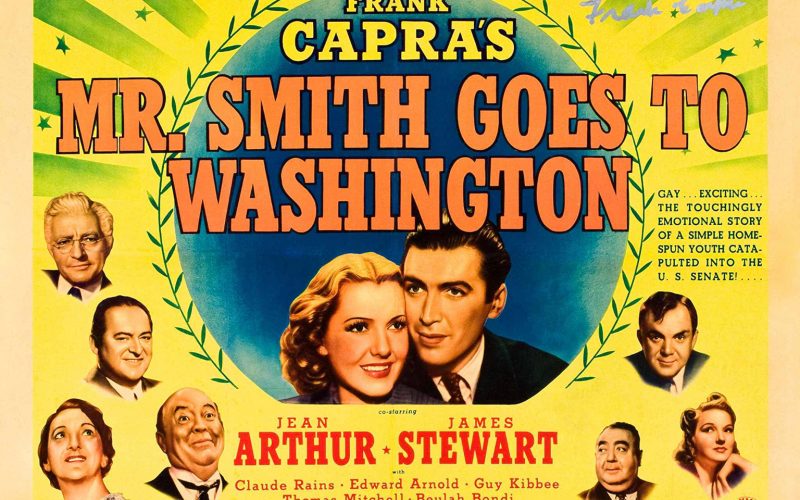Mr. Smith Goes to Washington (1939).
One of the innate powers of film is the ability to take a subject which is steeped in the culture, politics, language and values of a particular place or country, and illuminate a universal core which can resonate beyond language and borders. This is something that occurred to me whilst watching Frank Capra’s 1939 film Mr. Smith Goes to Washington. It’s a film steeped in the mythology of the American past and the ideology of an American present (albeit a 1939 present), yet it resonates with someone living 3000 miles away in a semi-rural/urban town in Wales.
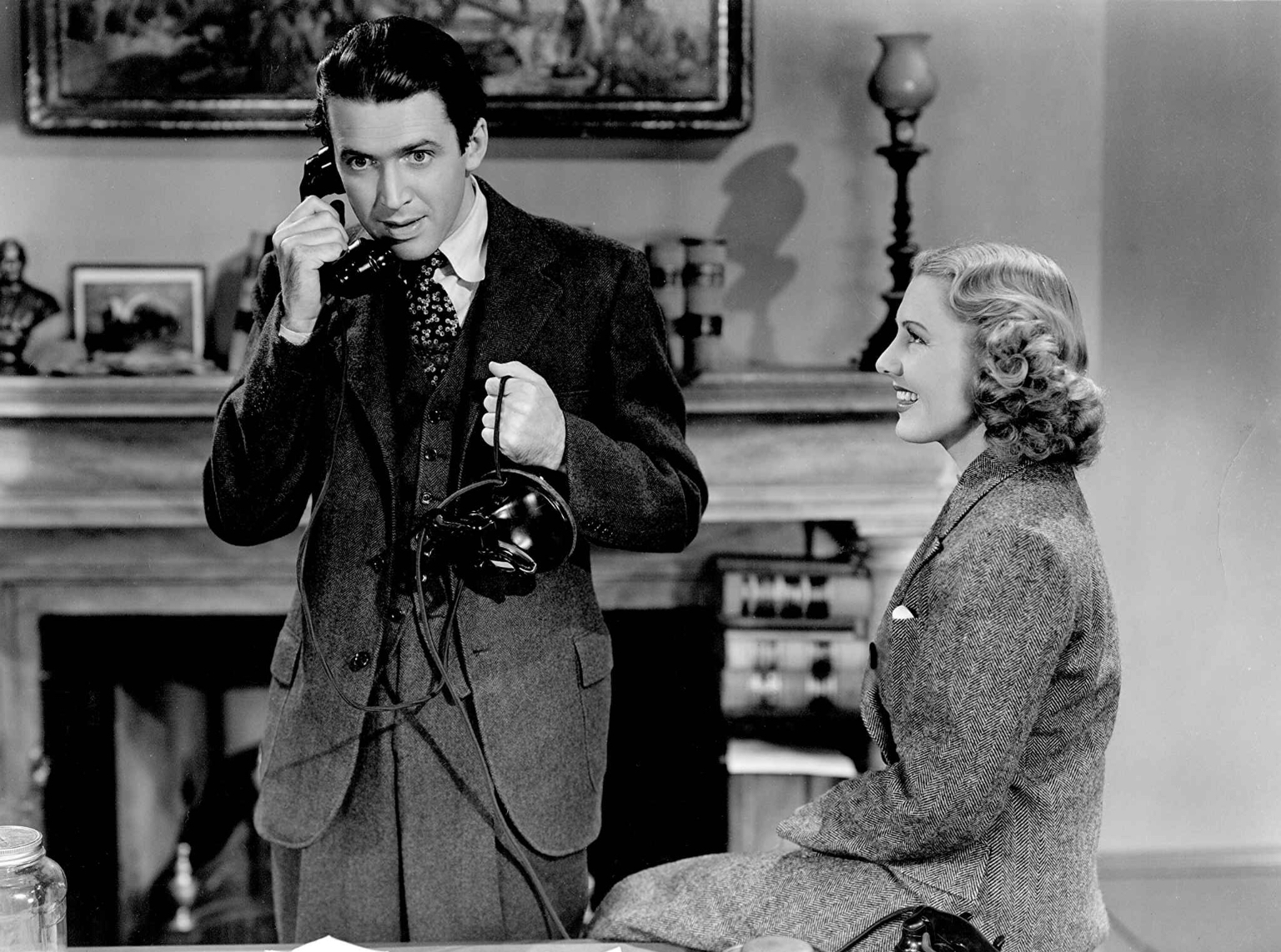
It’s undoubtedly a film which celebrates the American ideal of life, liberty and the pursuit of happiness; an ideal which, in its basic ambition, is shared by millions of people throughout the world. Of course, this ambition masks what can sometimes be a very complex issue but this complexity is not something that Frank Capra is interested in. This is not a criticism, in fact, for those of us living so far away, it is the essential strength of the film. The intricacy of the American system of Government is not something that translates throughout the world and, even though the film was made for an American audience at a time when Europe was entering its second world war in just two decades, the success of Mr. Smith over the eight decades since its release speaks of this universality that exists at its core.
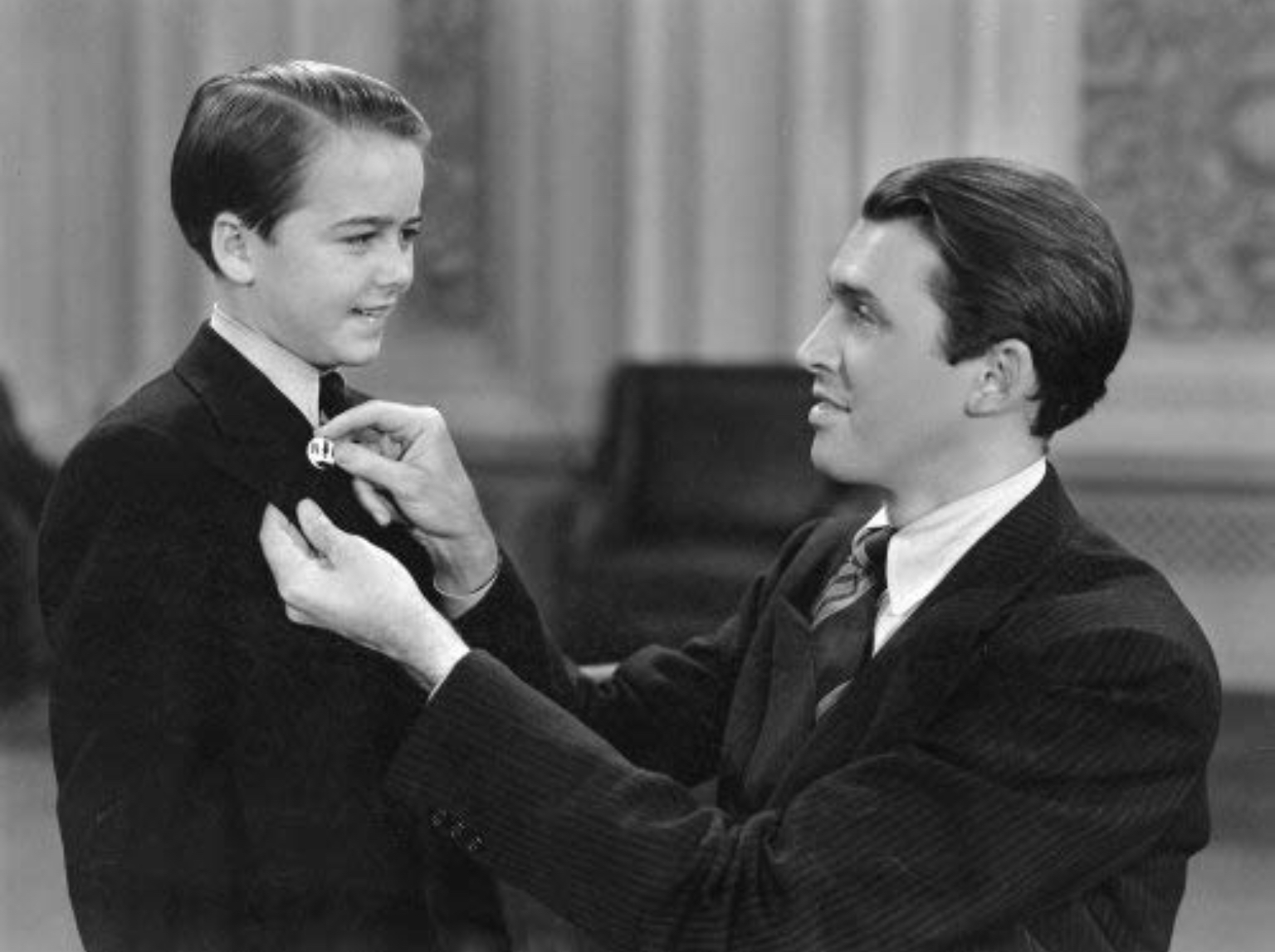
The American ideal is undermined in the very first minutes. A senator has died but the feeling is not one of sadness but of inconvenience. There’s an important bill going through the senate which will make a few people very rich indeed, and the deceased’s vote was essential for the bill to have a smooth passage into law, so his replacement must be someone who will be easily led and pliable. The selection of this senator is to be made by the state’s Governor, Hooper (Guy Kibbee) but in fact, he is being controlled by local newspaper baron Jim Taylor (Edward Arnold), the man who is set to make the most money from the bill. The other senator involved is Joseph Paine, played by the great Claude Rains.
When Hooper presents Taylor’s choice to the voters however, they voice a very loud objection. Under pressure from Taylor, Paine, the voters and his own family, Hooper ends up selecting Jefferson Smith, a young man whose only claim to fame is that he runs the local Boy Rangers club. Although Taylor is initially angry that Hooper ignored his selection, he is soon convinced that Smith – a young, inexperienced and naïve individual – would make the perfect patsy for their nefarious schemes.
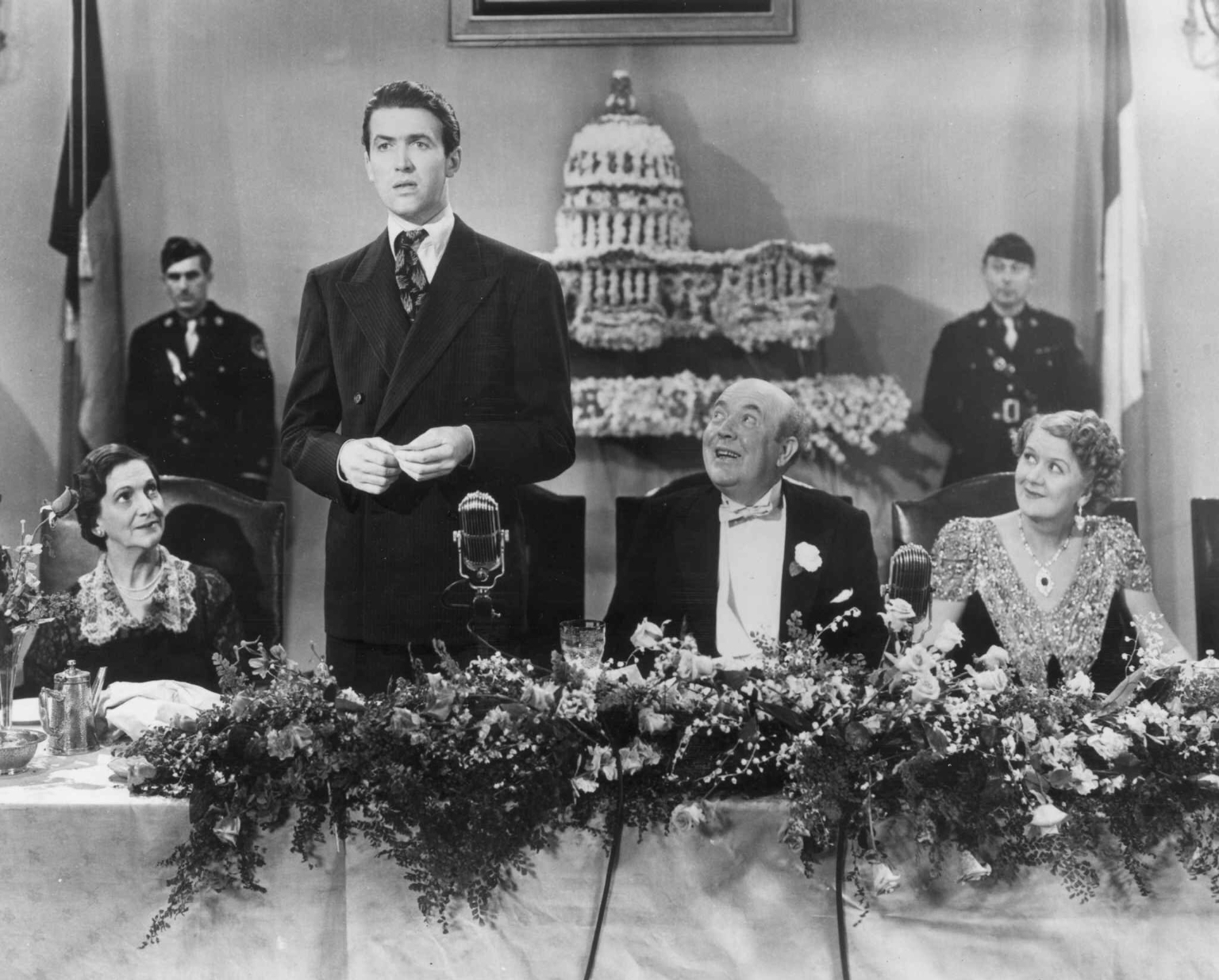
The titular Mr Smith is of course played by the legendary James Stewart, an actor who could play the naivete with just the right amount of comedy and likability which combines to create both a realistic patsy and, eventually, the idealistic hero we are all cheering for.
As the title suggests, Mr Smith heads to Washington and is immediately overwhelmed by the sights and the history. He absentmindedly loses his minders and goes off on a tour of the capital’s sites and historical landmarks. Capra presents us with a montage of sounds and images – the constitution, the Liberty Bell, the Washington Monument and finally, Lincoln himself, sitting high above the crowds, looking, as Smith puts it, as if he were waiting for something.
Back in Smith’s office this idealism is in short supply. Smith’s secretary – Saunders (played with perfect weariness and ennui by the quite wonderful Jean Arthur) – has had enough of Washington politics. She knows of the corruption, indeed she has played her part in it in the past, but now she has had enough. The last thing she needs is to babysit a greenhorn.
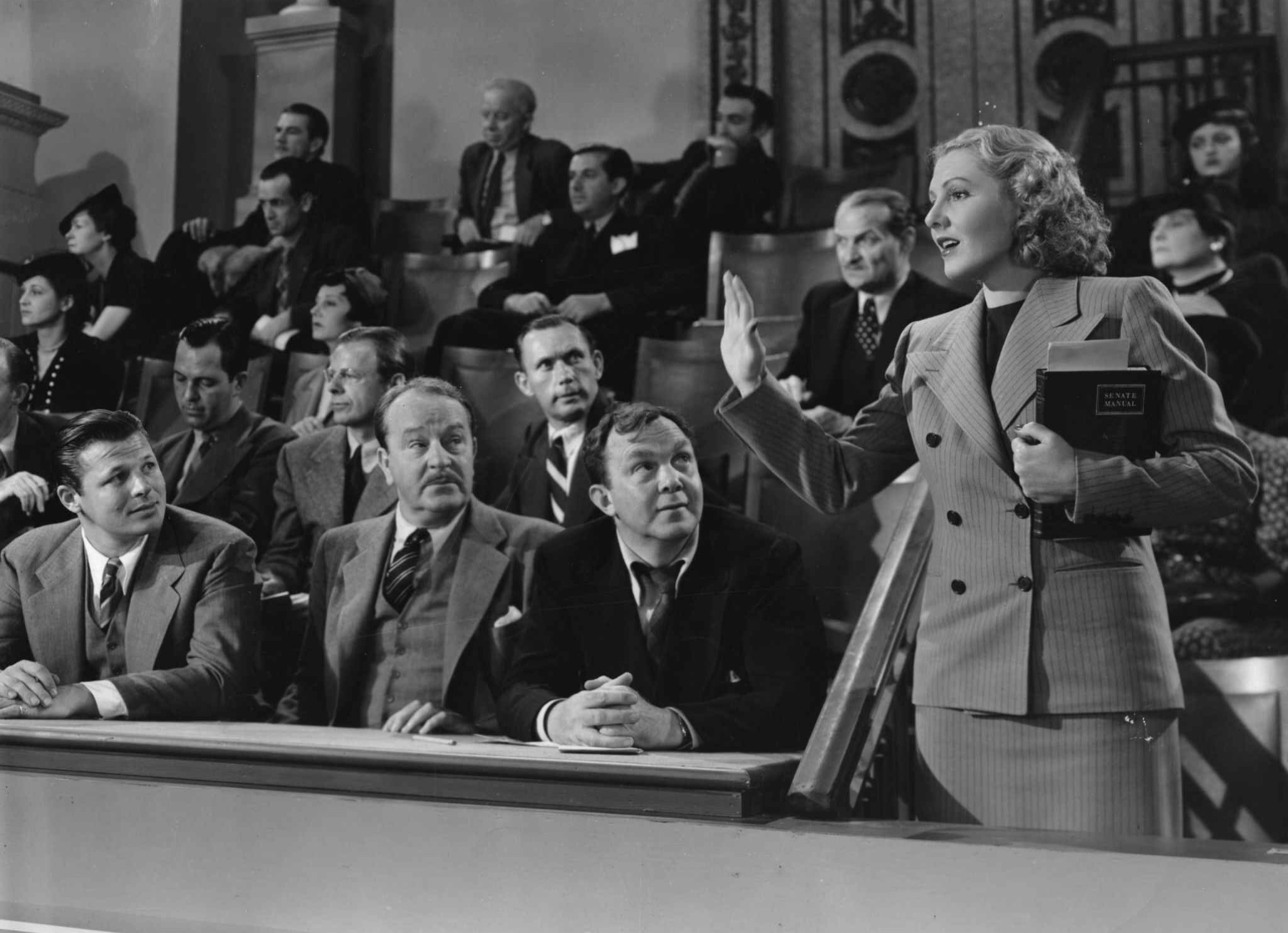
Her constant companion in her office, the man who is openly in love with her, is Diz Moore (Thomas Mitchell), a gruff reporter who has also seen it all, but whereas Saunders has had enough and is looking for inspiration, Diz loves the game. It drives him, feeds him, and he is the perfect foil for Saunders as she slowly changes from a cynic into a believer.
This is the crux of the story: the dirtying of ideals. Mr. Smith Goes To Washington isn’t about the corruption of the idealist. This is obvious from the beginning. This is a Frank Capra film not a Fritz Lang film after all. We know that Jefferson Smith will face up against the swamp of corruption and will no doubt triumph in the end. The question is how.
The aforementioned montage soon becomes not just a celebration of a country’s idealism and mythology, but the establishing of all that Smith believes in so that when the fall comes, we understand the heights from which he descends. If any aspect of Smith’s character is tainted it’s his naïveté. It’s actually quite sad that the mythologisation of the American past is seen as part of this naiveté, especially by those who hold the office that Smith extols so completely.
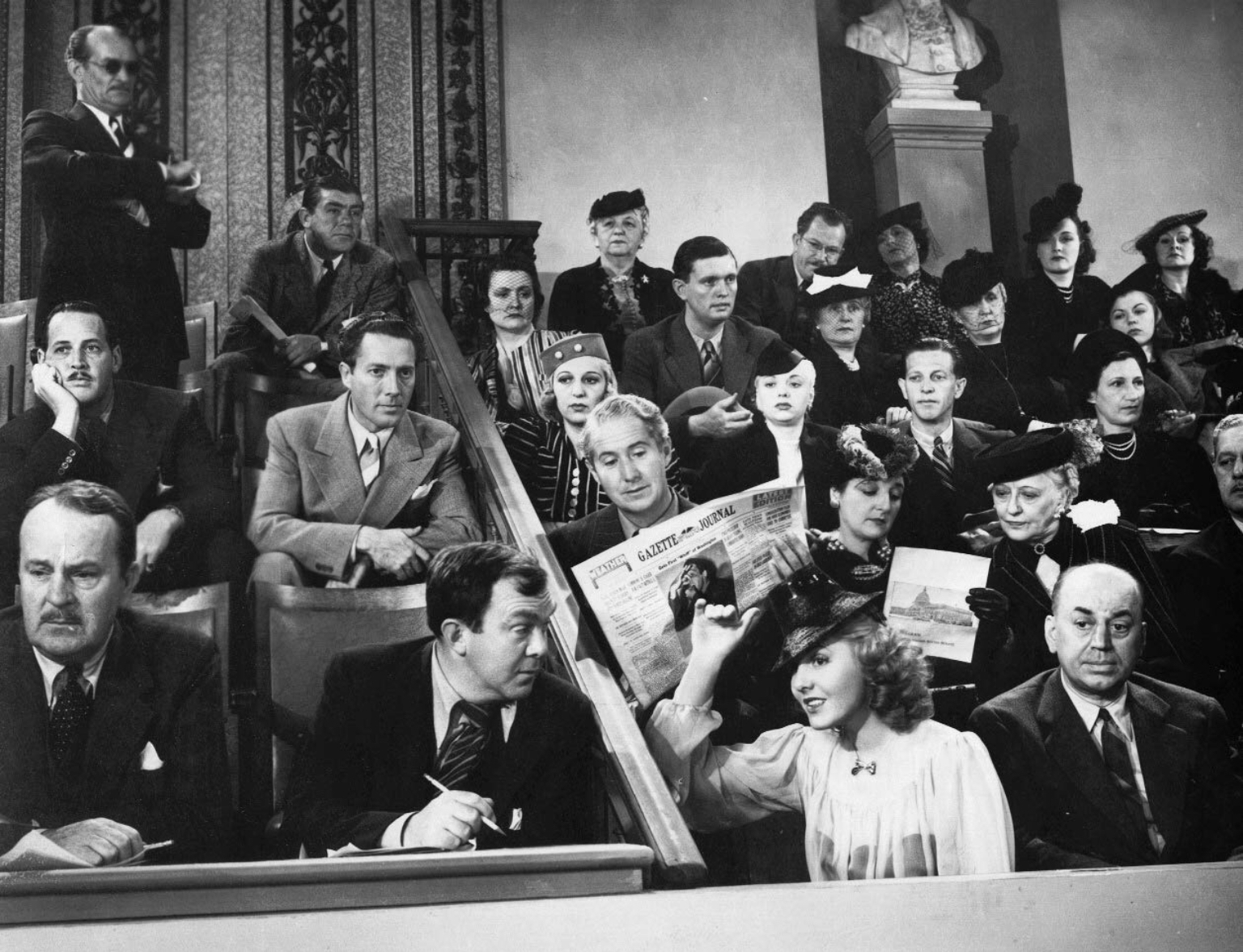
The path of this disillusionment comes in the form of his fellow senator, Joseph Paine. We know from the start that he’s corrupt yet to Smith he’s a hero. Paine doesn’t know who Smith is but the younger man soon reminds him that Smith’s father and Payne had once been friends, starting out together, Smith Snr working as a reporter as Paine moved into politics. Claude Rains, perhaps one of the most versatile and smooth actors in the classic Hollywood period, plays Paine somewhere between the calm graciousness of Here Comes Mr. Jordan and the suave corruption of Captain Louis Renault in Casablanca. He isn’t a one-dimensional bad guy, he obviously has a conscience no matter how deeply he’s buried it. Soon the battle isn’t between Smith and Jim Taylor even though Taylor is undoubtedly the real bad guy of the piece, but of Smith and Paine. After all, it’s Paine that sees Smith every day and is the true symbol of the corruption of power in the seat of government.
In many respects, Taylor is similar to Mr Potter (Lionel Barrymore) in It’s A Wonderful Life (which was released the same year as Mr. Smith Goes To Washington), in as much as he too is a corrupt official who tries to bring down the hero (in both cases played by Stewart) but never gets their comeuppance, at least not on screen.
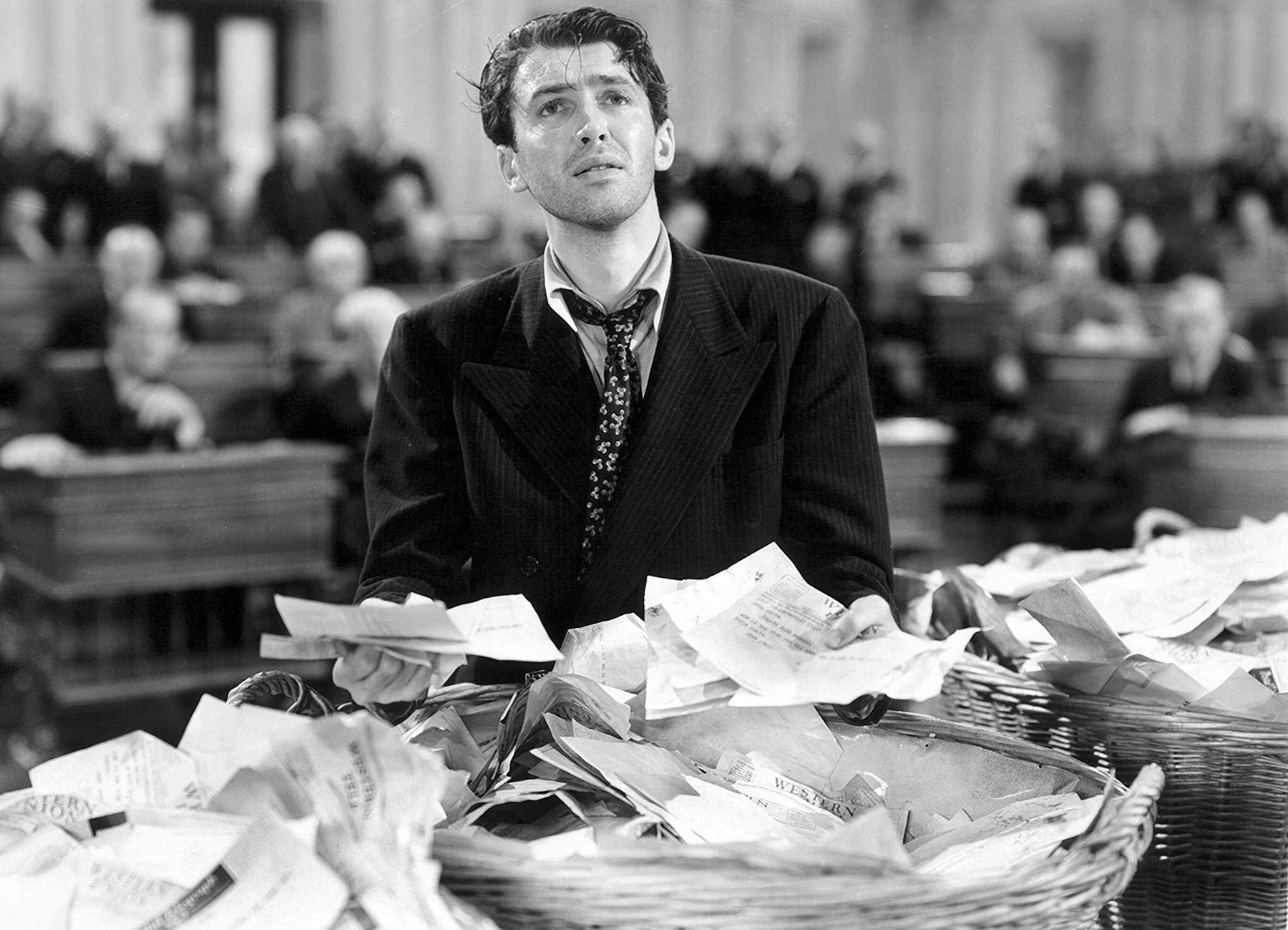
The ending of Mr. Smith Goes To Washington provides us with one of the best performances in James Stewart’s long and illustrious career. The idea of a filibuster may seem odd to non-Americans but it still makes wonderful cinema. The rules are outlined simply for those in the audience who don’t understand what’s going on (which would probably have been a lot of people in 1939) and then we just sit back and enjoy the bravura display. Basically it means that in order to thwart the passage of a bill, a senator can have the floor for as long as they like, as long as they remain talking, remain standing and don’t leave their desk at any time. There is enough humour to keep us interested with Smith, Saunders and the president of the senate played by the veteran Harry Carrey, who seems to be enjoying the whole show in front of him, to keep the proceedings light, but soon, as Smith grows more and more desperate, the drama rises.
Stewart went to extraordinary lengths to capture the desperate and hoarse voice as Smith’s filibuster continues for over twenty hours. According to Capra, Stewart’s throat was swabbed with a ‘vile mercury solution’ that affected his vocal cords.
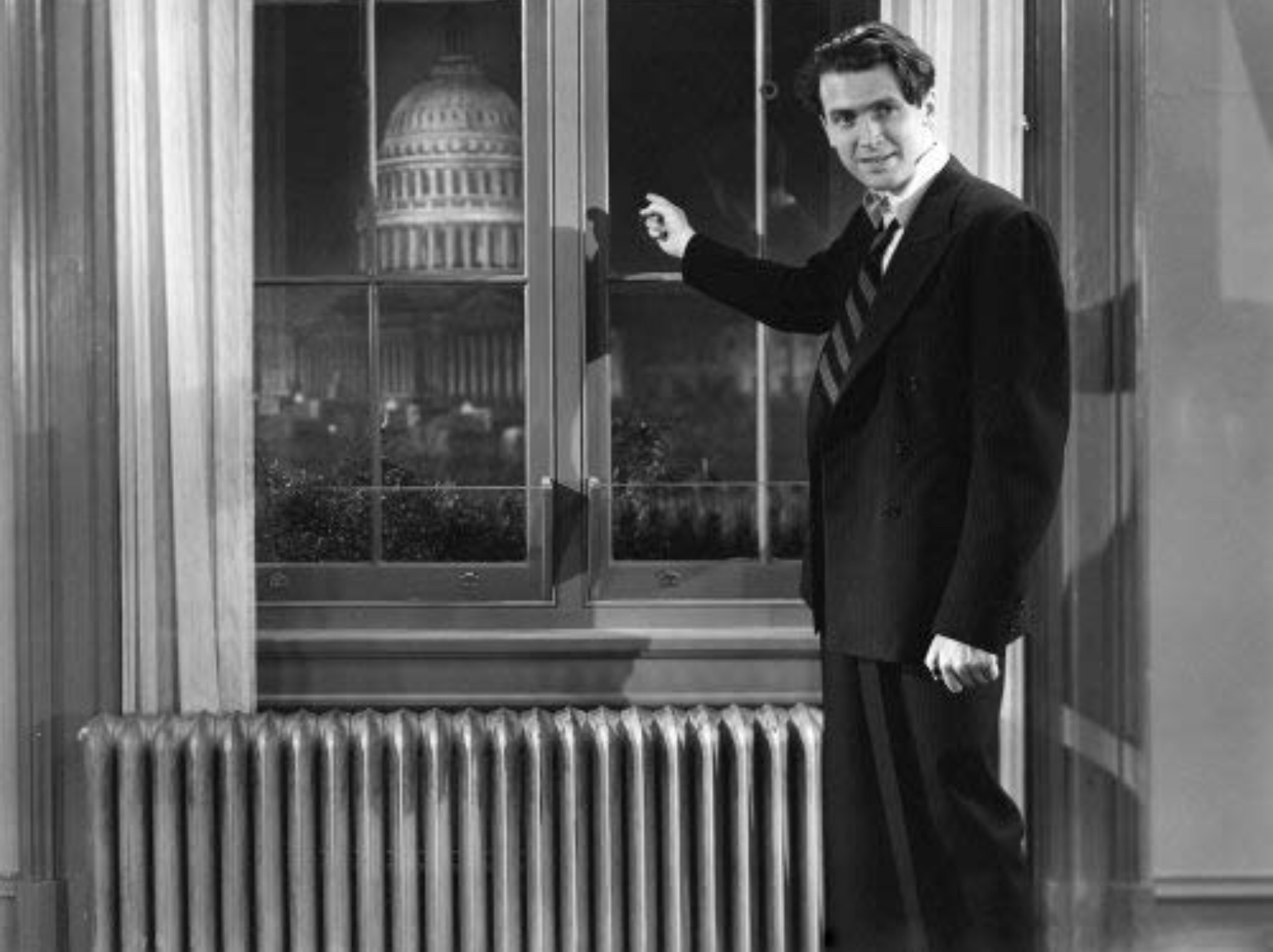
When the film was released it had a very bumpy ride. It was premiered in the Constitution Hall in Washington on October 17th 1939. According to Capra a number of senators who had gathered to watch it walked out of the screening. It was attacked by the press and was called anti-American and pro-Communist; senate majority leader, Alben W. Barkley, called it ‘silly and stupid.’
In the end it was nominated for 11 Oscars, winning one.
Mr. Smith Goes To Washington is a fun and inspiring film which still stands up after eight decades. It’s good to see a film which makes you want to punch the air at the end, that makes you feel good and presents the possibility that idealism can prevail. The reason why an American movie about American politics can strike a note 80 years later, is because the situations haven’t changed. Trust in politicians is still extremely low, yet, for a moment just before the end credits, it’s easy to believe that one good man, governed by idealism and not corruption, can make a difference. Even if it’s only in the movies.
Film ‘89 Verdict – 9/10
